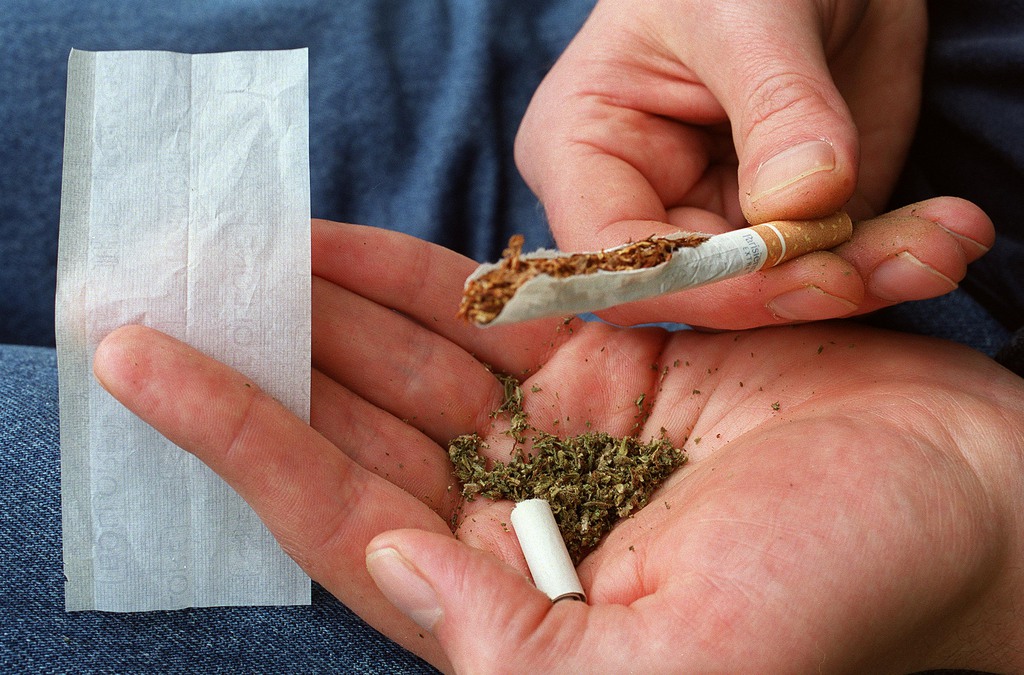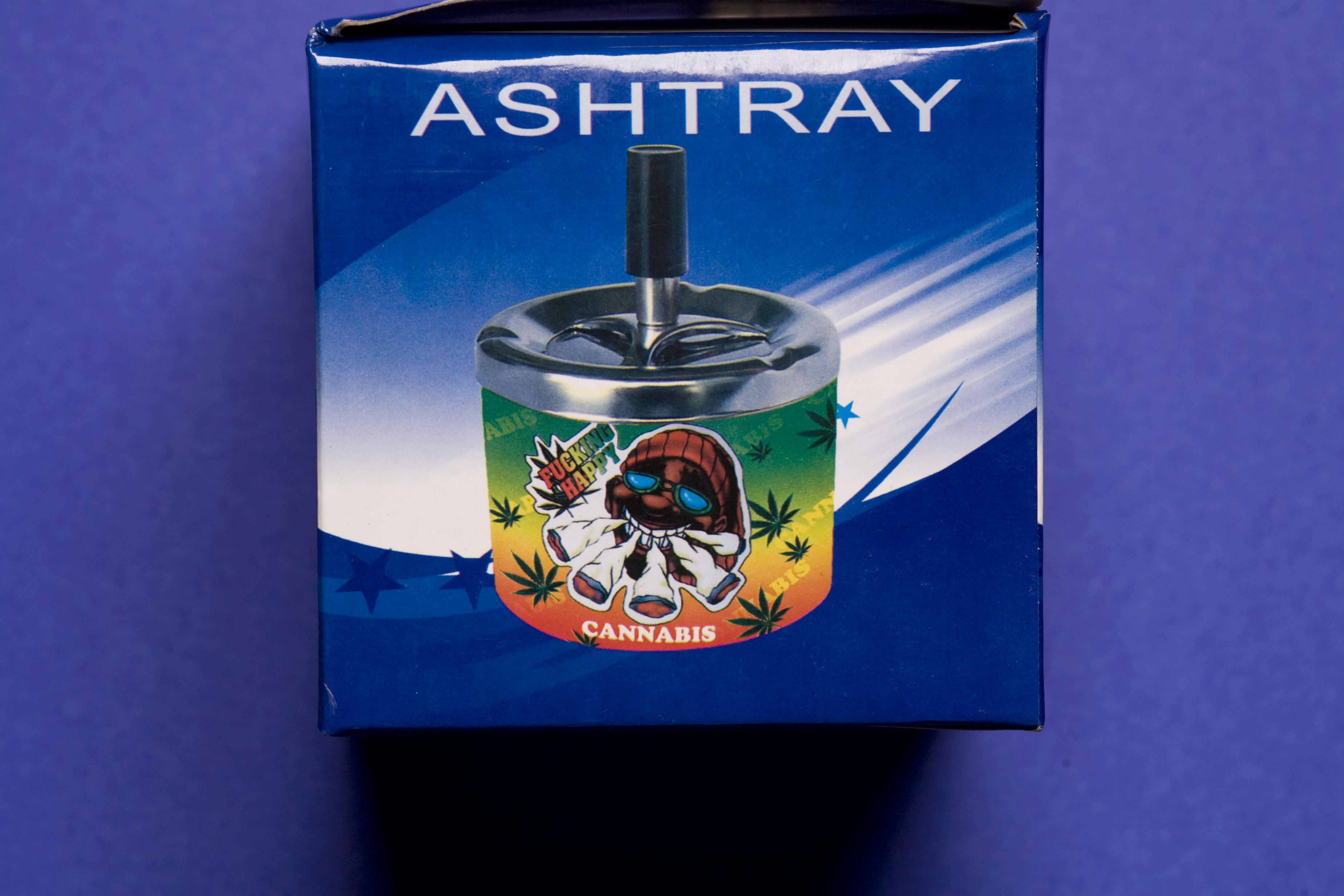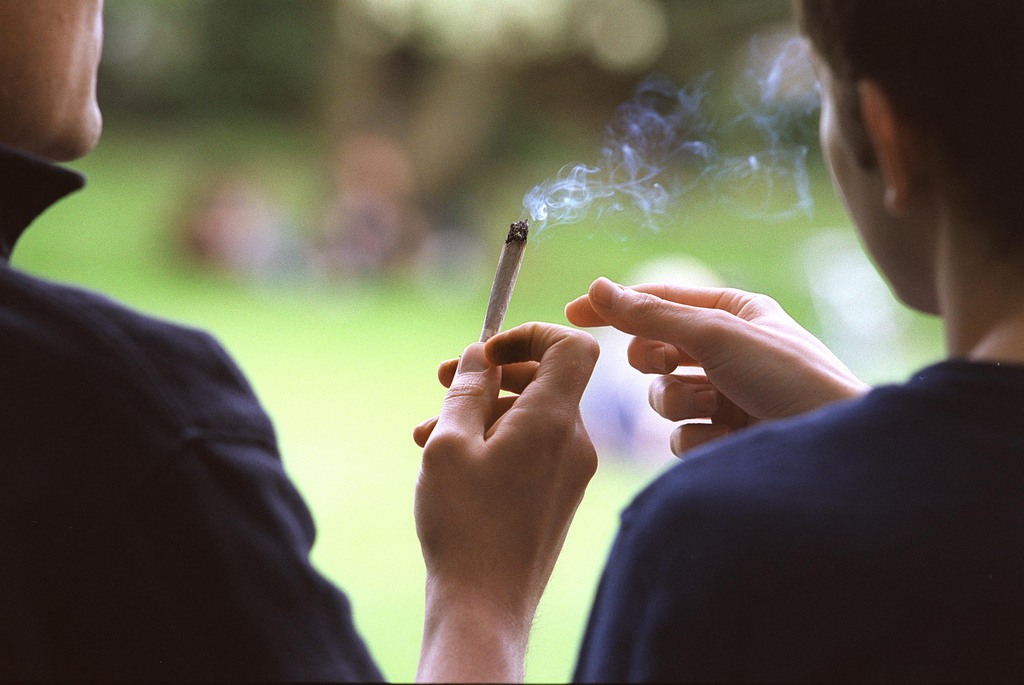Mixed feelings over new Swiss cannabis law

From October 1, an adult caught smoking cannabis in Switzerland can escape formal legal proceedings by simply paying a fine. Reactions to the relaxed law, which brings the Swiss in line with other western nations, are divided.
Thick sweet-smelling smoke spirals slowly upwards from a secluded courtyard in the Les Grottes neighbourhood not far from Geneva railway station.
“Sure this change is a good thing,” says *Dani, a young cannabis smoker. “I’ve been caught by the police before and I had five grams on me – they thought I was a dealer. I know lots of people who’ve had similar problems.”
Growing, consuming and dealing cannabis are all forbidden in Switzerland. But from Tuesday, like a simple traffic offence, anyone over 18 caught in possession of up to ten grams of cannabis will receive a CHF100 ($110) fine and not have it put on their criminal record.
Supporters of the revision, which was approved by parliament a year ago, argue that liberalising the legislation and shifting from criminal offence to misdemeanour is a small but realistic approach to cannabis consumption.
The change brings Switzerland in line with other European countries that tolerate dope smoking in small amounts (see map). Up to 500,000 people in Switzerland, which has a population of eight million, are believed to be occasional cannabis smokers, with officials noting a downward trend over the past decade.
Dani is not totally happy, however. “Quite frankly I think it should have been legalised and controlled by the state. At least then there would be a lot less delinquency.”
Around 180 million people use cannabis as a drug according to the UN World Drug Report (June 2013).
In Switzerland 28 per cent of residents aged 15 and over said they had consumed cannabis once in their lives (versus 25% for the EU average). Some 5.1 per cent aged 15 and over said they had consumed cannabis once in the past 12 months. Consumption is highest among 15-24-year-olds: 17 per cent said they had tried cannabis once in the past 12 months.
According to a Unicef report published in April 2013, 24 per cent of young children aged 15 said they had used cannabis in the past 12 months for the 2009-2010 period. This figure was the second highest after Canada, but down from 38 per cent in 2001-2002.
Trivialising drugs
Opponents, meanwhile, say decriminalising cannabis is contrary to the will of the Swiss people. Five years ago Swiss voters threw out a government proposal to legalise the possession, consumption and controlled trade in cannabis. Four years earlier, parliament had refused to discuss the issue.
On his lunch break in Geneva’s Cropettes park, *Jean-Philippe, a 45-year-old French statistician, said the new law was a step in the wrong direction. “Ten grams is a lot and CHF100 is not at all a deterrent. It will simply make consumption more common and trivialise the issue.”
Varying attitudes towards cannabis and the new law were also found among people in Zurich.
“It makes it too easy to possess drugs and not to be punished. Because I think marijuana can be a step into a career of drugs,” said Michael, 40, at the railway station.
Health and drug experts, on the other hand, believe that relaxing the law is unlikely to have an impact on national cannabis consumption. Quite the contrary, they say, pointing to Portugal and the Netherlands, which have tolerant soft drugs policies and where consumption of cannabis has fallen among young people.
Meanwhile, the Swiss debate continues; even former dope smokers are undecided.
“Ten years ago I would have been in favour of legalising cannabis,” said Marie, who has two teenage boys. “But today we shouldn’t minimise the dangers. In the 1990s, skunk [a strain of cannabis] had a THC level [the main active chemical in the drug] of about five per cent and was already powerful – today it can reach 30 per cent. It’s almost like a hard drug.”
Harmonisation
The government says the revision should harmonise legal practices that differ widely across Switzerland and lighten the workload of the police and justice systems, while saving money.
About 30,000 cases of dope smoking are reported to the courts every year in Switzerland.
Some cantons had already partly decriminalised cannabis consumption by introducing a small fine for a misdemeanour, while perpetrators in Ticino faced criminal proceedings and fines of up to CHF3,000.
“Police resources should be freed up to pursue drug trafficking,” said Corine Kibora, spokeswoman for Addiction Switzerland.
The Zurich and Bern cantonal police forces contacted by swissinfo.ch said that apart from less paperwork, the new law and system of fines would have no impact on their day-to-day work or strategy for dealing with cannabis use.
“This political change validates the change of cannabis’s status in society, but it’s not sufficiently clear. And on the ground the police’s task of implementing this idea is complicated,” said Jean-Félix Savary, secretary-general of Grea, a group studying drug addiction in French-speaking Switzerland.
He fears that cantonal police forces will not implement the law uniformly and the primary objective of harmonising police practices risks failure.
“It’s not a revolution – overall the approach remains hesitant and conservative. Considerable police resources will still be used to ensure this ban is respected,” he said, adding that one surprising consequence may be fewer pot smokers in the streets.

More
Weed accessories
Young smokers
One group of smokers seemingly unaffected by the revision is children under 18. Legal proceedings can still be brought against them and a local prosecutor or judge can issue a fine.
But there are some special measures for youngsters contained in the changes, Kibora explained. Dealers selling to young people will be more strictly punished and children with problematic cannabis use should be able to get expert help more easily.
According to a Unicef report published in April 2013, 24 per cent of Swiss 15-year-olds said they had used cannabis in the past 12 months for the 2009-2010 period. This figure was the second highest after Canada, but down from 38 per cent in 2001-2002.
The idea of more prevention and addiction support is very nice in theory, said Savary.
“We should stop the hypocrisy. The government invites the cantons to do more but doesn’t pay a single franc. Last week it decided to cut a quarter of the alcohol prevention budget and the same goes for drugs. If the politicians want results, they need to finance them,” he said.
*names withheld

In compliance with the JTI standards
More: SWI swissinfo.ch certified by the Journalism Trust Initiative












You can find an overview of ongoing debates with our journalists here . Please join us!
If you want to start a conversation about a topic raised in this article or want to report factual errors, email us at english@swissinfo.ch.